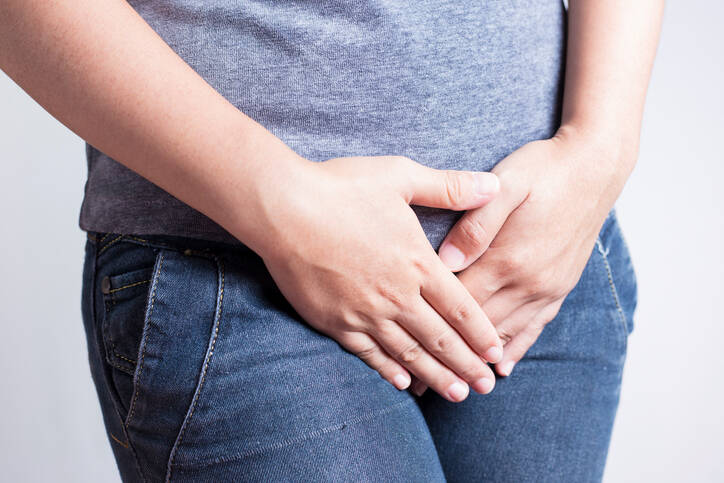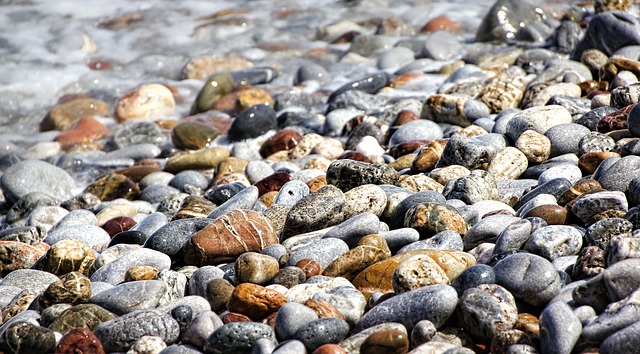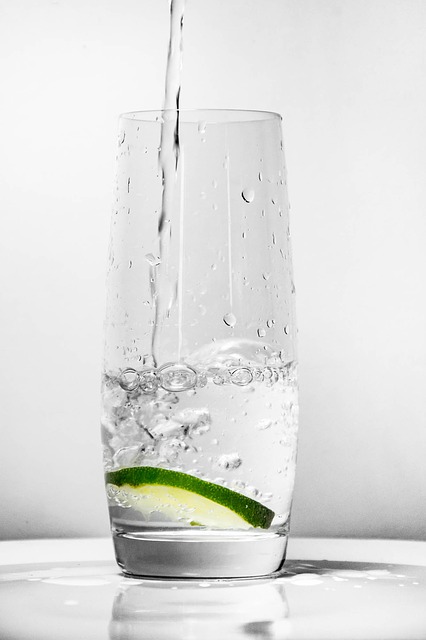- wikiskripta.eu - urination
- wikiskripta.eu - urinary tract infections
- zdravoteka.sk - Glomerulonephritis
- menopause.sk - Irritable bladder
Frequent urge to urinate: what causes it, colds and diseases?

In older age, it affects both women and men. But in the case of some diseases, it does not skip childhood. It is caused by inflammatory diseases of the urinary system, but also by other diseases. It is common in pregnancy. Drinking is also important.
Frequent urination (professionally, pollakiuria) can be a symptom for multiple diseases. Whether directly of the urinary tract, organs, urinary system, or other organs in the body responsible for excreting harmful and excess substances and fluids.
You often ask:
What is the frequent urge related to, what diseases are causing it?
What if it occurs along with heavy and painful urination, could it just be a cold?
Could the psyche be to blame?
How to treat it?
Irritable bladder
But sometimes it is related to less serious diagnoses, such as irritable bladder syndrome. This is the main cause of frequent urinary urgency in women.
Its main cause is reduced estrogen levels. It occurs at menopause. In addition to atrophy of the bladder muscles, there is also atrophy of the muscles of the pelvis and vagina.

As the main manifestations are present:
- frequent urge to urinate
- feeling of pressure over the pubic bone
- leakage of urine (incontinence) on exertion
- urge incontinence, which is actually a state of sudden urgency with the need to urinate
- complications are frequent inflammation
- impaired voiding of urine
- and impaired sexual function due to atrophy of the pelvic floor muscles
Overactive bladder is characterised by frequent urges, which also occur at night. Pain on urination is usually present. Urinary incontinence may or may not occur.
The diagnosis is made if the urge occurs more than 8 times in 24 hours and the diagnosis does not prove the presence of inflammation, urinary tract disease or metabolic disorder.
The woman's life is severely socially restricted, she avoids social life, isolates herself. Sudden urges are limiting and it is necessary to visit a urologist or gynaecologist. This is not a serious disease.
In this case, the impact is also on the psyche. Impaired mental condition can equally negatively affect the frequency of urges.
Inflammation of the urinary system
Inflammation of the urinary system can be divided into inflammation of the kidneys, ureters, bladder and urethra. In women, they occur more often, mainly due to the length of the urethra.
Infections in urethritis pass more easily to the bladder. Repeated urinary tract infections are dangerous. Uroinfection is accompanied by the urge to urinate frequently.
Similarly, cystitis is associated in the vast majority of cases with a bacterial infection. Treatment consists mainly in taking antibacterial pharmacological preparations and following a drinking regime.
In this inflammation, pain during urination is also present, which can be burning, cutting, stinging. Pain in the lower abdomen, urination of small amounts of urine, cloudy urine, blood in the urine, smelly urine.
Pain may radiate to the lumbar region, lumbar spine, elevated temperature, even fever, chills. Nausea, i.e. a feeling of vomiting, is also present.
In such a case, it is necessary to remember also for inflammatory kidney disease. This is also manifested by frequent urging to urinate. And the already mentioned difficulties.
An example is nephritis, an infectious inflammatory disease of bacterial origin. It can be either acute or chronic.
Interstitial cystitis is a chronic disease that is characterized, in addition to frequent urging, by pain in the small pelvic area, especially during bladder filling.
On examination, bacteria are not present in the urine and treatment with antibiotics is not effective. There is frequent inflammation of the bladder wall.
As a consequence, scarring forms, which reduces its capacity. The cause is not clear. Up to 90% of cases affect women, mostly between the ages of 20 and 40.
Bladder stones and frequent urination

Urinary stones affect the urinary system quite frequently. They are caused by insufficient dissolution of mineral and other substances in the kidneys. These are not washed into the ureter but form deposits.
They are in the form of small stones, but larger kidney stones can also affect the kidneys. Sometimes they fill the whole area of the renal pelvis.
They then travel through the urinary tract, causing pain and the urge to urinate frequently. The pain caused by the stone is also called renal colic. Its intensity is usually very high.
Urinary stones can cause inflammation of the urinary tract. But in most cases, this disease is caused by Escherichia coli bacteria.
Prostate as a cause
Frequent urge to urinate in men and also frequent urination accompanies prostate disease. Prostate enlargement, professionally benign prostatic hypertrophy (BPH), is a benign disease. It is especially common in men over the age of 50.
It has three forms - namely microscopic, clinical and symptomatic. Treatment can be either conservative (in the form of medication and administration of various preparations to the bladder musculature) or surgical, which is the most effective.
Diabetes mellitus
Frequent urge to urinate is also present, for example, in diabetes mellitus. The main cause is diabetic neuropathy, which is a disease of the nerve fibres as a complication of diabetes.
Within the urinary system, there are disturbances in the emptying of the bladder, which is insufficiently emptied. Which in turn irritates the affected patient to urinate again. Incontinence may also occur.

Diabetes insipidus
Diabetes insipidus is a disorder of the hormone ADH, which is an antidiuretic hormone, otherwise known as vasopressin. More precisely, it is a deficiency of it in the body. It is manifested by polyuria (frequent urination, urge to urinate) and polydipsia (morbid thirst).
In this disease, more than 3 liters of urine are excreted per day, in some cases up to 15 liters. If the affected person does not take in enough fluids, dehydration occurs.
The hypothalamus or pituitary gland is affected. The cause can be congenital, autoimmune, after inflammation, trauma, but also after bleeding in the brain. Whether a consequence of a tumor disease.
A consequence of neurological disease
Frequent urge to urinate can be a consequence of stroke. When the cause is in nerve damage. Other neurological diseases can also be behind this symptom.
Medication use and frequent urination
Drugs called diuretics, causing increased urination, are the cause of frequent urging to urinate. They are mainly used in heart diseases, its failure and also in high blood pressure.
Inappropriate drinking, caffeine and alcohol

Inappropriate drinking is also one of the causes of frequent urination. Excessive fluid intake will cause a physiological reaction, increased urine output. A proper drinking habit will solve this problem.
Increased intake of caffeine or theine may be behind it as well. It has a diuretic effect.
Coffee, tea, caffeinated beverages, as well as artificial sweeteners, encourage the urinary system to increase urine output. Citrus fruits irritate the bladder and thus its emptying.
Alcohol has a similar diuretic effect, especially when drinking beer. This is also due to the increased volume that is drunk.
Frequent urge to urinate in pregnancy
The period of pregnancy is distinguished by the fact that hormonal changes occur in the body of a woman. With the enlargement of the fetus in the uterus, the proportions in the abdominal cavity and pelvis change.
All this can stimulate more frequent urges to urinate. But it is also during this period it is necessary to watch out for inflammation of the urinary system and other diseases of the urinary tract.
Frequent urination in children
Even children can be affected by inflammation of the urinary system. Especially girls. As already mentioned, this is mainly due to the shorter urethra.
Children can develop an incorrect drinking habit, which can again cause frequent urination. It is important to teach them the correct drinking regime.
Children also need to be taught to hold their urine and train their bladder to control this urge to void.
Video about frequent urination
Diseases with symptom "Frequent urge to urinate"
- Diabetes
- Ectopic pregnancy
- Enlarged Prostate
- Gonorrhea
- Hyperparathyroidism and hypoparathyroidism
- Inflammation of the Ovaries and Inflammation of the Uterine Appendages
- Kidney stones
- Kidney inflammation
- Multiple sclerosis
- Ovarian cancer
- Prostate Cancer
- Puerperal infection - postpartum infection
- Reactive Arthritis
- Incontinence - urine leakage
- Inflammation of the urinary tract
- Vulvitis - inflammation of the female organs
Herbs used forFrequent urge to urinate
Interesting resources










